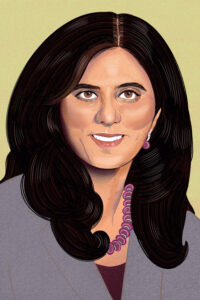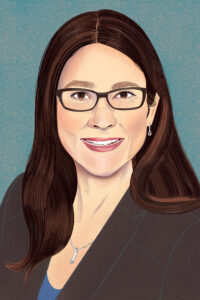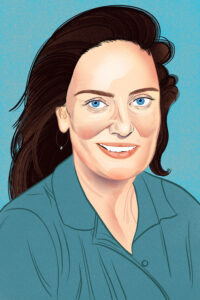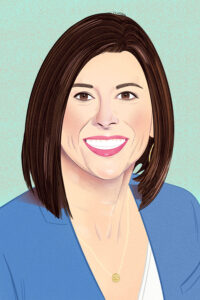Meredith is a strategic leader with 29 years of experience who is not just interested in processes, goals and objectives but is most of all passionate about her greatest assets: her team members. Her success has been attributed to her ability to manage large-scale complex programs in cross-functional areas while advancing the skill sets and careers of her team members.…
Meredith is an active member of the Health Care Compliance Association, where she has demonstrated her commitment to compliance by holding dual certifications in healthcare compliance and privacy. She is also certified as a HealthCare Information Security & Privacy Practitioner through the International Information System Security Certification Consortium, Inc., and a Certified Information Security Manager through the Information Systems Audit and Control Association. She continues to provide leadership for several industry groups. She serves as a Board member for the Health Information Sharing and Analysis Center, the National Technology Security Coalition and the Cybersecurity Collaborative, to name a few.
Meredith is passionate about empowering women and minorities to embark upon careers in technology, especially in information security, where those populations are not well represented. She’s committed to transforming the industry by driving engaging and provocative discussions around diversity, equity and inclusion and the value it brings. Her hope is that the industry transforms more rapidly so that women and minorities become normalized in the tech and security spaces. Though she is committed to her professional community, she is equally as committed to her local community, evidenced by her 31 years of service through her Diamond Life membership in Delta Sigma Theta Sorority, Inc.
Meredith is a proud alumna of the University of Detroit Mercy and the Loyola Chicago School of Law, where she received a Master’s in Health Services Administration, a Bachelor of Science in Computer Information Systems, and a Master’s of Jurisprudence in Health Law, respectively. Show more

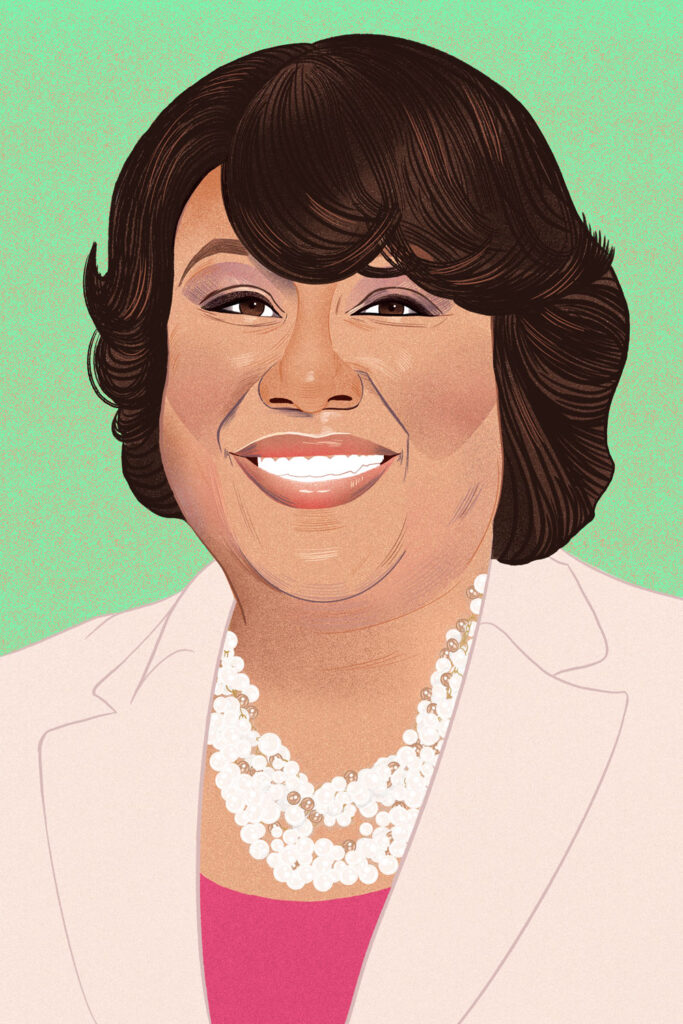
LEADERS IN CYBERSECURITY
Meredith R. Harper
Senior Vice President and Chief Information Security Officer, Synchrony
What does a typical day of work look like for you?
Our days are so unpredictable due to the threat landscape adjusting minute by minute. However, my days are typically spent researching cyber trends, engaging with my team, getting a pulse on our current work in progress, attending many meetings, providing insight or escalating concerns to my executive leadership or board.
What aspects of your career journey have taken you by surprise?
Honestly, it’s surprising that I am a chief information security officer. It’s a surprise because it wasn’t something I set out to do at the beginning of my career. Cybersecurity was not a discipline in those days, and the fact that the industry has emerged and grown to this magnitude is surprising. The evolution has allowed me to chart a career path I could have never imagined – simply amazing.
Tell us about the cyber project you're most proud of working on in your career.
I’m going to answer this unconventionally. We deliver many technical and strategic initiatives for our organizations. I’m proud of those, but I’m most proud of the team members who have realized their career dreams under my leadership. I’m also proud of the people I’ve offered opportunities to in their careers. I’m also proud of the privacy, security, risk management, compliance and audit professionals I’ve partnered with, over the years, in their development. People are our most critical component and we cannot deliver and protect our organizations without them.
How has public perception of cybersecurity changed over the course of your career, and how do you predict in the future?
Honestly, I don’t think the public had a perception of cybersecurity or technology at the beginning of my career. Cybersecurity didn’t exist, and technology teams “lived in the basement.” It was out of sight, out of mind. When you think back to the early to mid-90s, organizations did not even acknowledge most chief information officers as strategic executive leaders. Over time, the internet emerged, technology was placed in the hands of average consumers, cyber risks increased and the everyday consumer had to increase their knowledge to remain safe. Now, I believe the public perceives cybersecurity as something companies battle with complex technology. I believe that in the future, every consumer will become their own cyber warrior. They will realize they are in the fight just as much as organizations and cybersecurity professionals. We welcome that change because cybersecurity is a team sport.
Tell us about your first job (can be anything!) and one lesson you might have learned from it.
My first job was at a female-owned construction company, where I was hired as a receptionist and office assistant. I was 14 years old and had the awesome opportunity to watch a woman leader make a space for herself in a male-dominated field. I think that’s when I realized that I don’t have to belong to succeed.
What’s one piece of advice you’d give your younger self about getting started in cyber?
Well, I told myself this at the beginning of my career, and it has served me well for almost 30 years. I told myself to lean into unique experiences versus chasing levels and roles. Doing so allowed me to position myself for roles or disciplines that had not emerged yet. I was a good candidate because I focused on collecting skills and experiences. I showed my leadership that I was adaptable and ready for what was new.
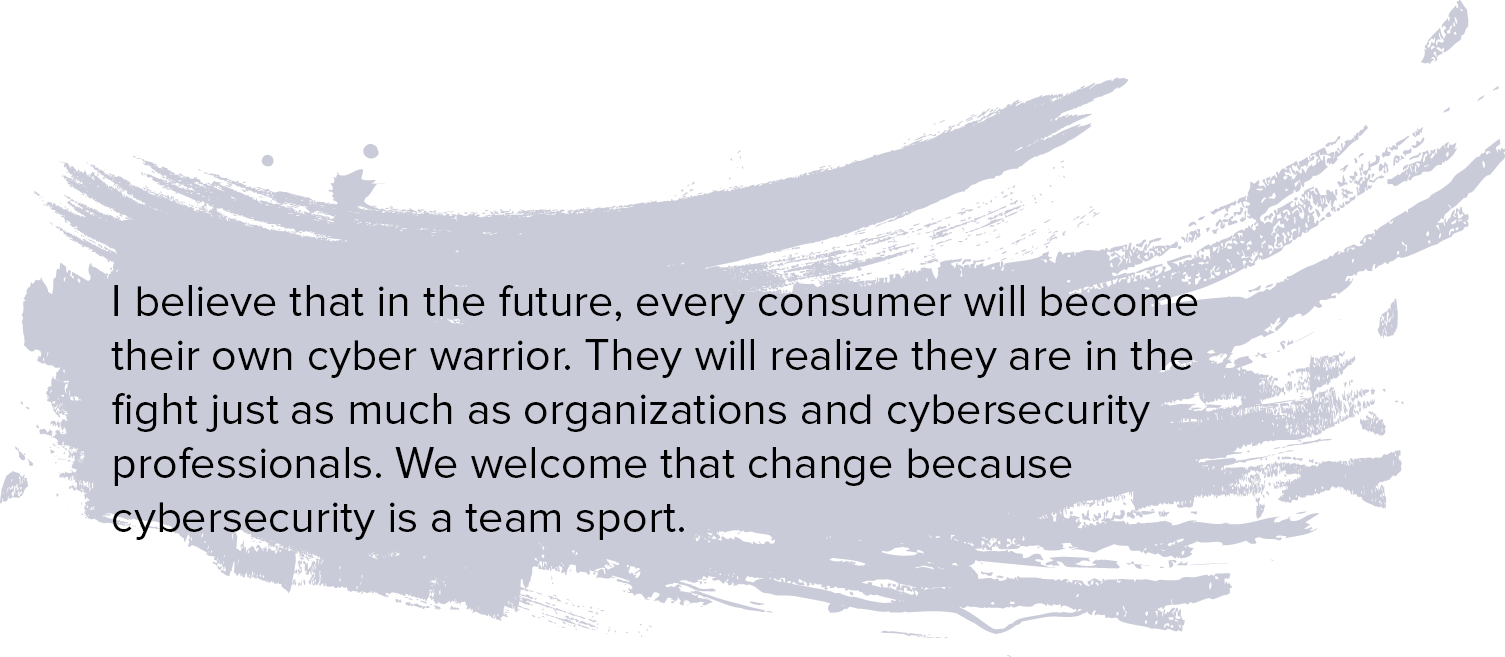
Tell us about a role model or mentor who has helped shape your career.
I have two mentors who’ve been pivotal in my career – Nancy Schlichting, retired CEO, and Mary Alice Annecharico, retired CIO – both from my Henry Ford Health System days. These phenomenal leaders taught me to lead with compassion, be fair, join the development journey with your teams and that representation matters. I would not be where I am in my career without these two role models.
A meeting gets canceled and you have a surprise 30 minute window of free time — how do you spend it?
I wish I had a more profound answer, but I will be attempting to clean out my inbox and check my emails.
What are the ways you stay grounded and take care of yourself?
In our industry, self-care is table stakes for success. Over the years, I’ve integrated my life with my work, but even then, I ensure I have proper breaks to fully disconnect. I don’t mean just putting the phone down for one or two hours… sometimes I need to put it down for one to two days. This is where trust and empowerment of your team are important. They enable you to do this when needed.
When you think about your personal legacy as a leader, what do you hope people will remember?
I hope people remember me as an advocate and that I cared about my team, loved my work and the people I worked with, and was passionate about ensuring that the next generation of cyber leaders had space on the stage. I hope they will say that I made my time on this earth and in this industry count.


